The Truth and nothing but the Truth. Did MoFi do good by Jeff Beck’s classic? Read on.
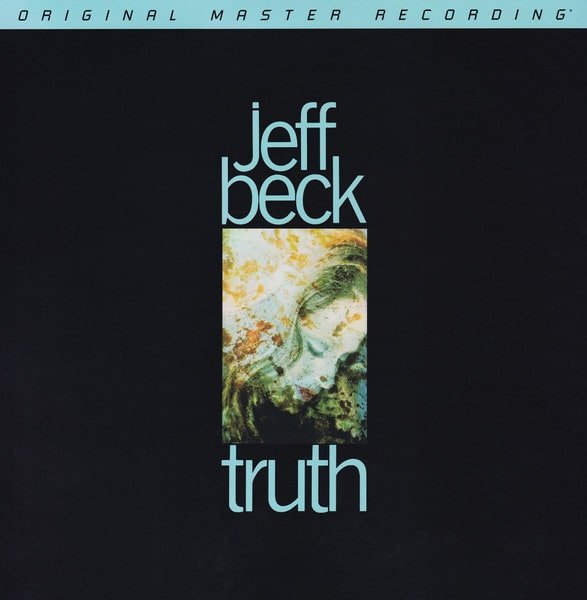
Truth — Mobile Fidelity Sound Lab – MFSL 1-368, (2021, July), promo.
Originally released on Columbia – SCX 6293 (1968, July).
Ratings:
- Global Appreciation: 9.8
- Music: A
- Recording: 9.5
- Remastering + Lacquer Cutting: 9.8
- Pressing: 10
- Packaging: standard, non-laminated gatefold
Category: blues rock, heavy rock, psychedelic rock.
Format: Vinyl (2×180 gram LPs at 45 rpm).
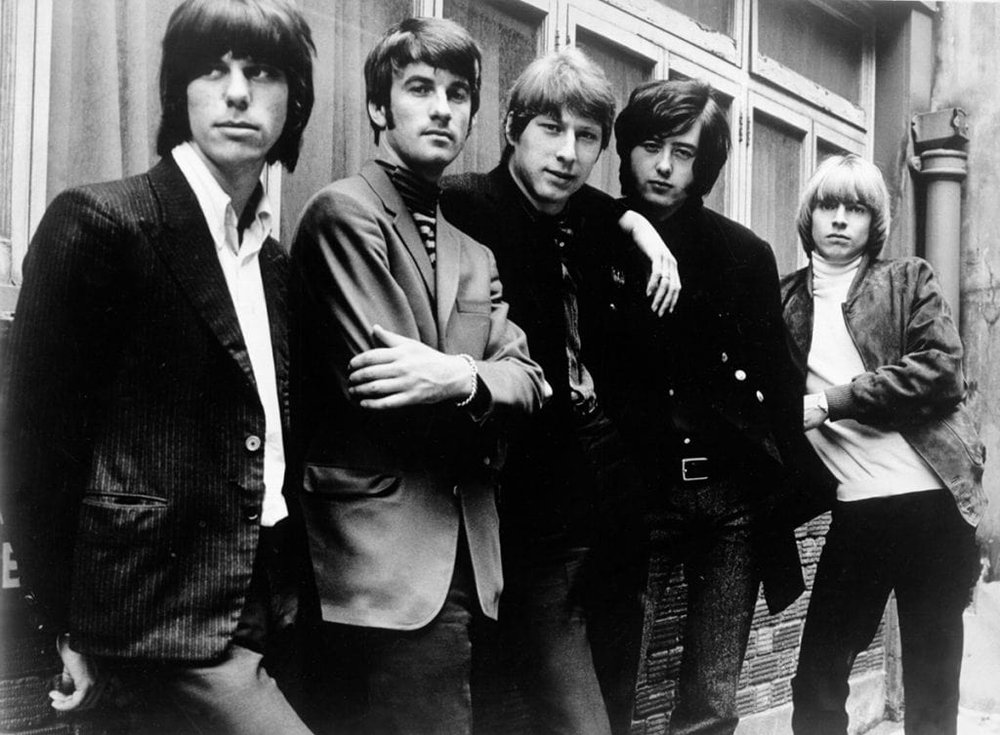
As we left off in part-one, Iron Butterfly had just released their sophomore rock-landscape-shifting album, In-A-Gadda-Da-Vida. Meanwhile, in November, 1966, amid strong tensions within the ranks of the Yardbirds, Jeff Beck left the group to fly on his own. In ‘67, he recruited vocalist Rod Stewart, bassist Ron Wood, and drummer Micky Waller to work on what would become his debut album under the ‘Jeff Beck’ banner before switching it to ‘the Jeff Beck Group’ for his second album, Beck-Ola,a year later.
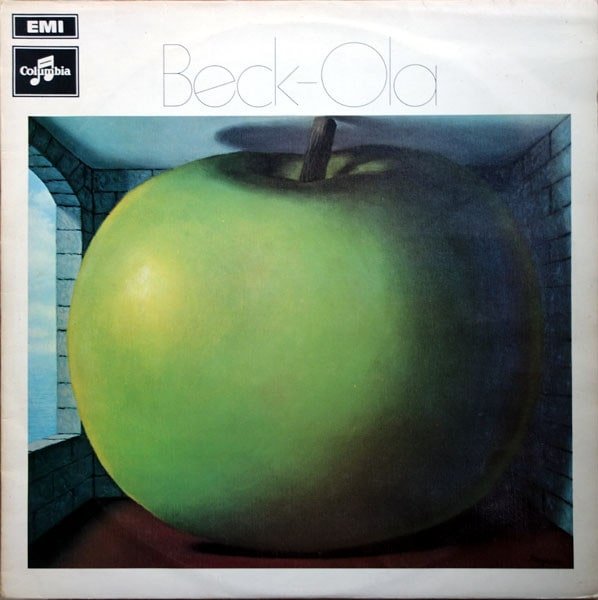
Truth was released in July, 1968—a month after Iron Butterfly’s In-A-Gadda-Da-Vida. Did it reach the same level of commercial success as the former album? No, but it proved as pivotal, if not more so, in the development of heavy rock, and to a certain extent, forecasted elements found in hard rock in the ‘70s. It also had a lasting influence on many of the great guitarists who followed, helping them to fashion their own intricate solos, sound, and personalities. Led Zeppelin may have sang about a “Heartbreaker”, but Truth was the ‘groundbreaker’ that served as a bluesprint for Zep’s formative years.
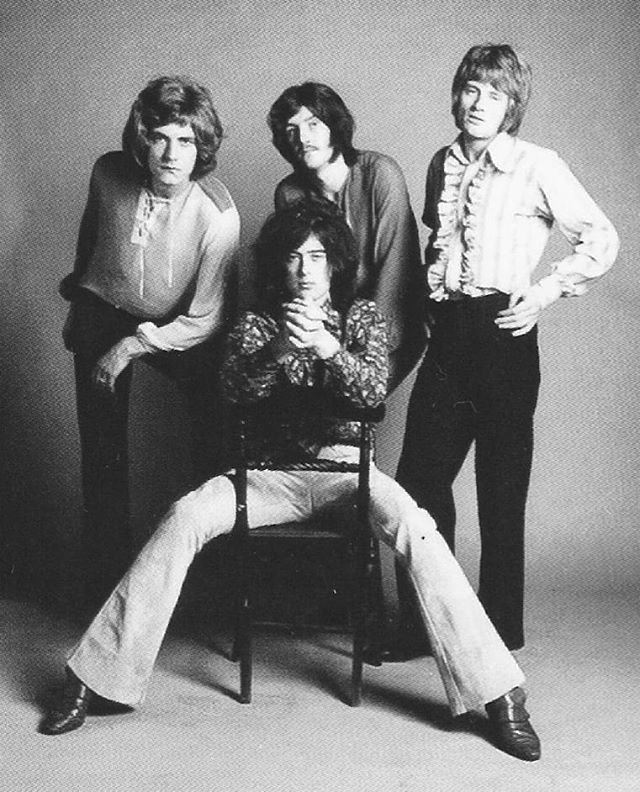
If you were oblivious to Beck’s debut, you could think it was some long-lost Zeppelin material. Except it couldn’t be, having appeared nearly six months prior to Zep’s debut. The common thread underlining all of these groups and records was the blues—more specifically, electric, Chicago blues. Brought to American cities by older black artists, this style of blues was re-appropriated mostly through the lens of young white British musicians—Hendrix seeming to be the exception here—who magnified the density and distortion of the genre, and played in a harder, more aggressive style.
The album comprises ten tracks with a mixture of originals by Beck and Stewart, blues covers, and traditionals. It starts with a total reworking of the Yardbirds’s 1966 landmark single “Shape of Things”,which, with its feedback-fuzz-distorted Eastern-scaled guitar solo, started the whole psychedelic rock movement, and influenced Hendrix, Clapton, and many others.
With its slower, heavier rock vibe, “Shape of Things”, from the get-go, revealed future echoes of Deep Purple’s “Highway Star” intro from 1972’s Machine Head.
Rod’s raspy voice fits perfectly with Beck’s twisting, distortion-driven guitar. Waller pummels the drums while Wood fires out flurries of bouncing bass notes. Buddy Guy’s 1961 Chicago blues single “Let Me Love You Baby” gets abridged to “Let Me Love You” and revamped into a blues rock track with a tambourine that heralds Zep’s “Heartbreaker”. “You Shook Me” is a blues rock cover of a 1962 Muddy Waters and Earl Hooker blues song written by Willie Dixon. Future Led Zep bassist John Paul Jones plays the organ on it, and did so again, with Led Zeppelin, who gave the track their own twist on their self-titled debut in January, 1969, making it heavier and more psychedelic—and much superior than Beck’s version, in my opinion.
Next up, “Ol’ Man River”, originally a 1927 show tune from the musical Show Boat, is riveting, as Rod wraps his expressive vocals around Beck’s slow-motion,deep-bass foundation, accompanied by John Paul Jones on Hammond organ and The Who’s Keith Moon on tympani. The traditional “Greensleeves”, which dates back to 1580, is kept simple, interpreted by Beck soloing on acoustic guitar in a string structure familiar to the intro of
another song—”Stairway to Heaven”, released years later on Led Zeppelin lV.
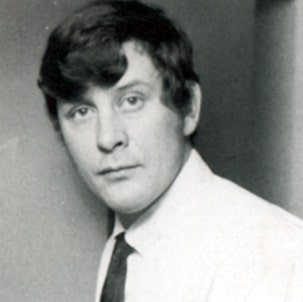
“Beck’s Bolero” borrows from Ravel’s famous Boléro composed in 1928. Originally recorded in May, 1966, as a Beck side project, and released as the B-side of the single “Hi Ho Silver Lining” in 1967, it took on greater prominence after its inclusion on Truth. An instrumental, it features Beck on a six-string Gibson Les Paul, Jimmy Page on a Fender Electric Xll twelve-string electric guitar, John Paul Jones on bass, Keith Moon—who, at the time was not on best terms with his Who bandmates—and Nicky Hopkins on piano. “Blues Deluxe” appears to be a live recording but was, in fact, done in studio with minor “fake audience” effects added to the mix.
Producer Mickie Most hoped to turn Beck more into a pop star than a true rock star guitarist, which did not sit well with Beck. It resulted in Most being in the studio mostly only during the mix, while Beck’s manager, and soon-to-be Led Zeppelin manager, Peter Grant, who supported Beck’s creative vision, attended the entire recording sessions.
Coincident with the recording of Iron Butterfly’s IAGDV–Truth was recorded in May, 1968, by Ken Scott at Abbey Road, Olympic, and De Lane Lea studios in London. Scott also happens to be the prolific engineer behind Supertramp’s incredible-sounding 1974 album, Crime of the Century, as well as…
…an insane list of iconic rock and fusion albums spanning more than two decades, from the Beatles to Bowie to Lou Reed, to America, to Stanley Clarke, to name just a few. Scott even co-wrote a book aptly named Abbey Road To Ziggy Stardust.As most of the songs were recorded live in studio, it took roughly only a week and a half to complete Truth. And it shows—you can sense the power and spontaneity of the performances and the energy the band delivered. Stewart’s vocals were superbly captured with a Neumann KM-54—a cardioid ‘pencil’ tube condenser mike. Surprisingly, it was hand-held, which Stewart preferred doing over the typical way of singing into a fixed mike. To minimize unwanted handling noises, a sponge was wrapped around the mike.
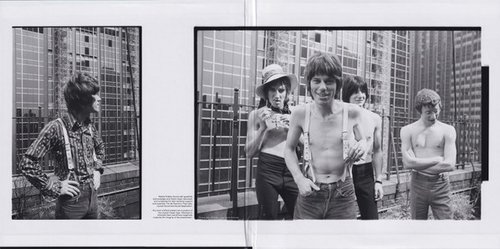
Whereas the original UK pressing (top left) had a regular sleeve, MoFi added, along with its standard turquoise top strip, a nice gatefold jacket. Opening it, we find, published in black & white, two photos—one of Beck in a shirt and suspenders and the other of Beck and his bandmates appearing shirtless (although Beck kept the suspenders).
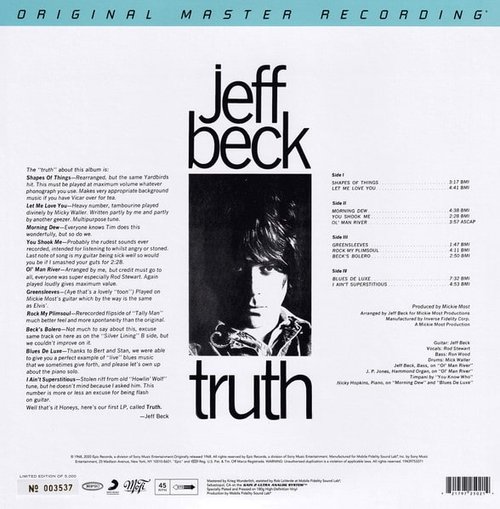
Inside each sleeve opening we find the company’s usual folded cardboard to add protection to the record housed in their inner HDPE sleeves. The source used for the transfer was the 1/4″ / 15 IPS analog master tape transferred to DSD 256, then to the analog console and lathe. MoFi’s Krieg Wunderlich, assisted by Rob LoVerde, remastered and cut the album at 45 rpm, leaving about a third of the vinyl area reserved for the dead wax on all sides. RTI pressed it on 180g regular formula for release in July, 2021.
I don’t have the original Columbia UK pressing, or any other pressing I can compare the MoFi with, but what I can say without a doubt is that MoFi’s remastering and cutting here is as perfect as can be, surpassing most if not all of my best-sounding heavy and hard rock references, such as my all time favourite, Deep Purple’s 1972 Made in Japan on the Gray-Hoffman remastered DCC, Rush’s 1976 2112 on the original ‘JAMF’ Mercury, and most tracks of Led Zeppelin’s 1969 II on the first Canadian ‘red’ Atlantic pressing.
The tonal balance on MoFi’s Truth is spot on, with punchy, groovy bass and kick, guitar and vocals at just the right level to get enough presence without assaulting the ears, an intimate perspective, a wide soundstage, and appropriate dynamics for this rock genre. The MoFi version also sounds very organic, meaty, and analogue. The reproduction of the bass in “Ol’ Man River”, in the right channel, is seismic in scale! “Beck’s Bolero”—recorded at an earlier date—is the only track that, although far from bad, doesn’t sound outstanding or on the same level as the rest of the album. Its cymbals are less refined and extended, and it has a tonal balance that’s more centered in the mids and compressed, which is what abstained me from giving this reissue a perfect “10”. Rumour has it that Keith Moon knocked off an overhead mic while playing, curtailing the top end, which might account for what I heard.
Even though this remastering is not a ‘One Step’, it still surpasses certain of them, incredible as that may seem. This is the kind of sound one would have wished for Led Zeppelin’s self-titled debut to possess instead of the subpar sonics we’re stuck with on every subsequent pressing. In other words, this Truth is simply incredible! Sadly, like the Iron Butterfly release, it’s sold out, although you can still get it from online vendors. If you feel forced to choose between ‘Butterfly and Beck because of budgetary constraints, I’d recommend going with the latter for purely sonic reasons, or musically, if you’re more into blues than acid.
Subsequently, Rod Stewart and Ron Wood joined the band Faces—formerly Small Faces—in 1969. Later, Stewart would go on to have a long and successful solo career, while Wood, in 1975, became a Rolling Stone.
Throughout the ‘70s and beyond, Beck chose to explore less commercial jazz rock fusion genres, while Page, Plant, Jones, and Bonham—briefly touring as The New Yardbirds—took the “Stairway to Heaven” to become one of the biggest bands the world had ever seen.
Personnel:
- Jeff Beck – electric, acoustic, pedal steel guitar, vocals.
- Rod Stewart – lead vocals.
- Ron Wood – bass.
- Micky Waller – drums.
Additional Personnel:
- John Paul Jones – bass, Hammond organ.
- Nicky Hopkins – piano
- Keith Moon – drums, timpani.
Additional credits:
- Arranged by Jeff Beck.
- Produced by Mickie Most.
- Recorded May 1968 at Abbey Road, Olympic, and De Lane Lea, in London.
Engineered by Ken Scott. - Remastered and lacquer cut by Krieg Wunderlich and assisted by Rob LoVerde at Mobile Fidelity Sound Lab in Sebastopol, CA.
- Plated and Pressed by RTI, CA, USA.
- Artwork design by Loring Eutemey.
- Photography by (front cover) Stephen Goldblatt.
- Photography by Don Hunstein.
Reference List (Singles, albums, and labels):
- Beck-Ola [Columbia SCX 6351]
- “Shape of Things” [Columbia DB 7848]
- Machine Head [Purple Records TPSA 7504]
- “Let Me Love You Baby” [Chess 1784]
- “You Shook Me” [Chess 1827]
- “Hi Ho Silver Lining” [Columbia DB 8151]
- Crime of the Century [MoFi MFSL 1-005]
- Made in Japan [DCC Compact Classics LPZ-2052]
- 2112 [Mercury SRM-1-1079]
- Led Zeppelin [Classic Records – Atlantic SD 8216]
For more from Claude Lemaire visit…
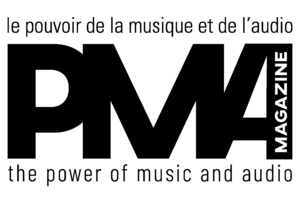
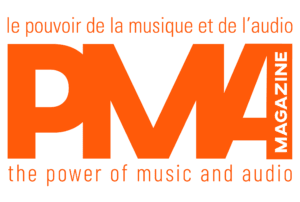

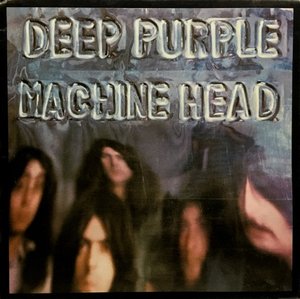
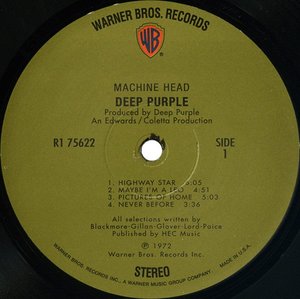
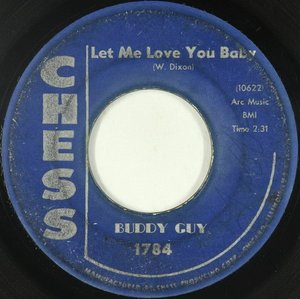
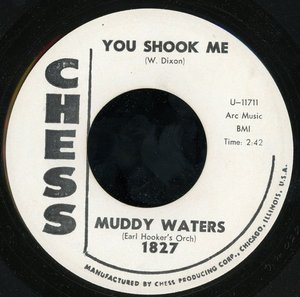
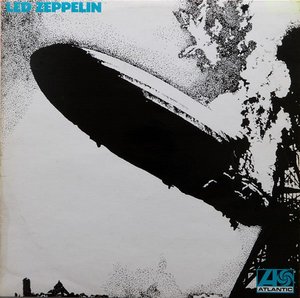
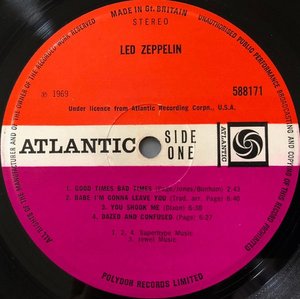
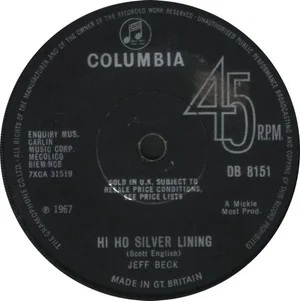
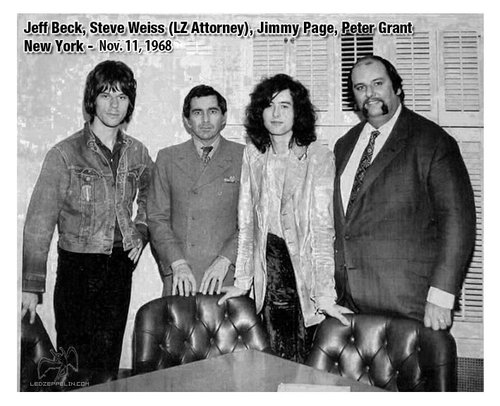
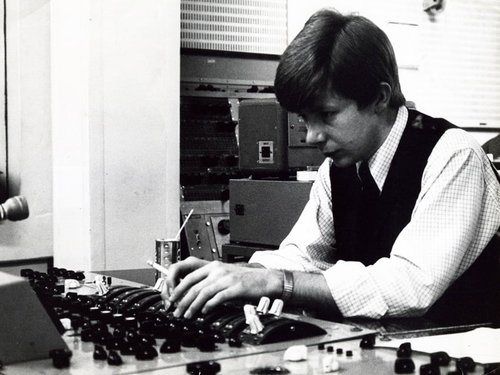
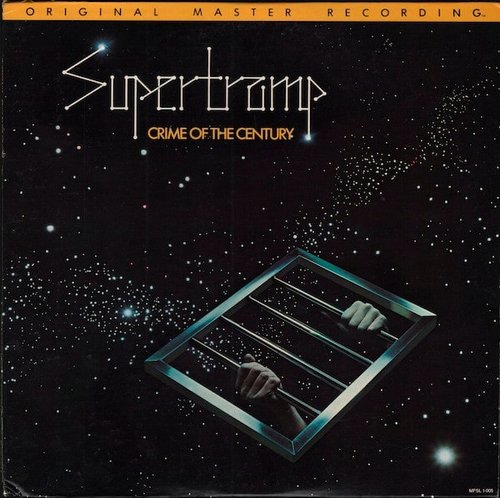
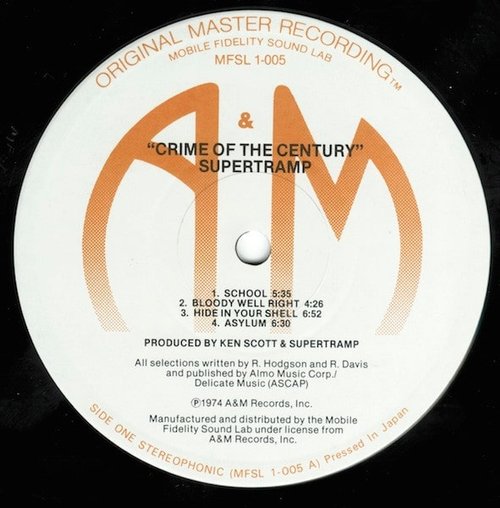
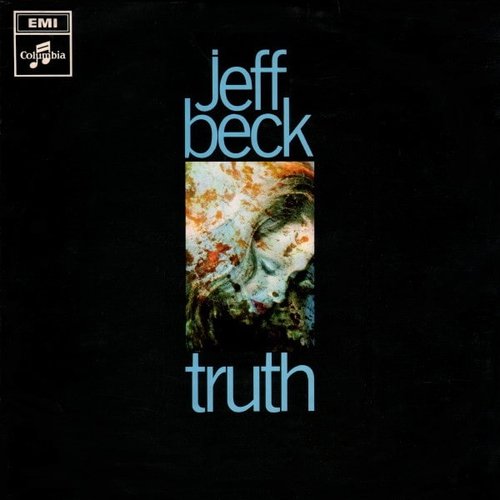
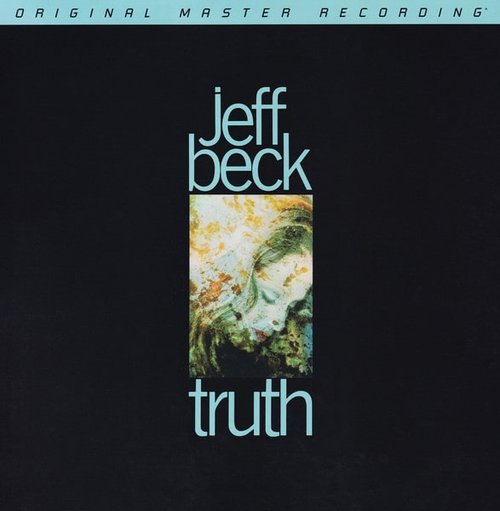
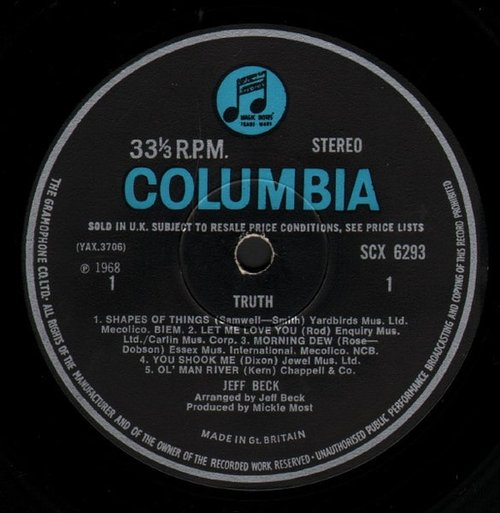
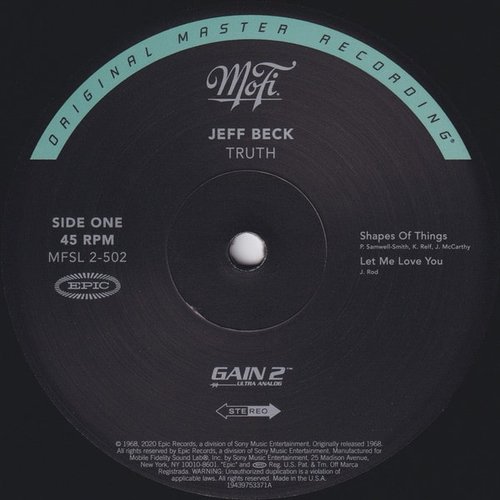
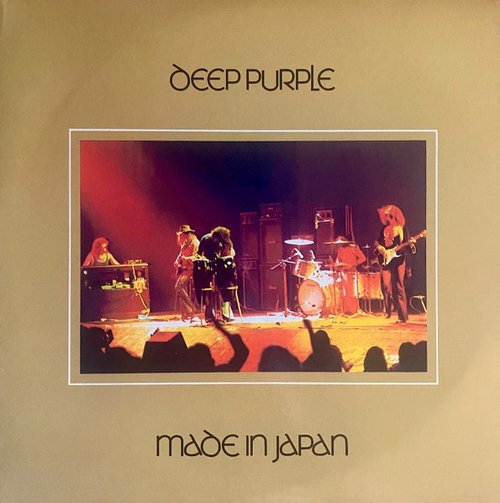
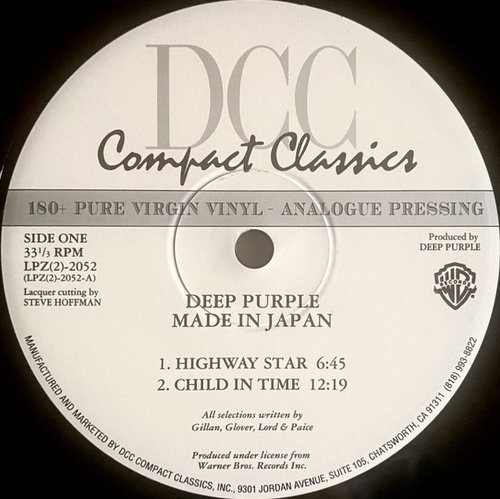
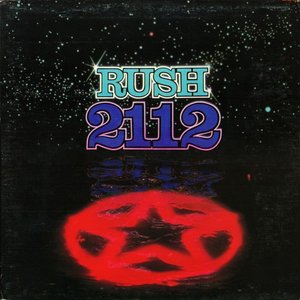
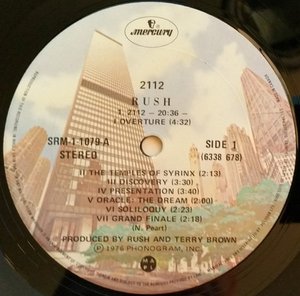
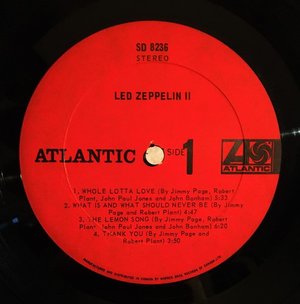
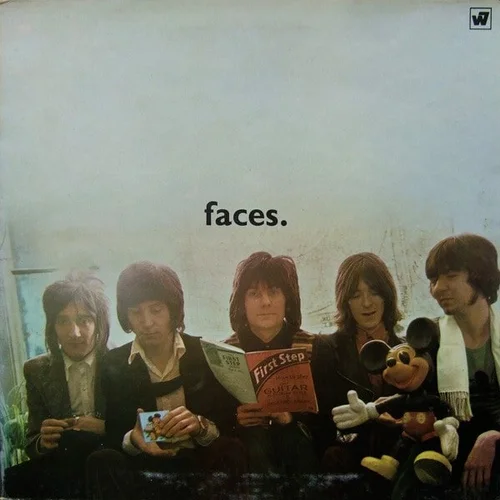

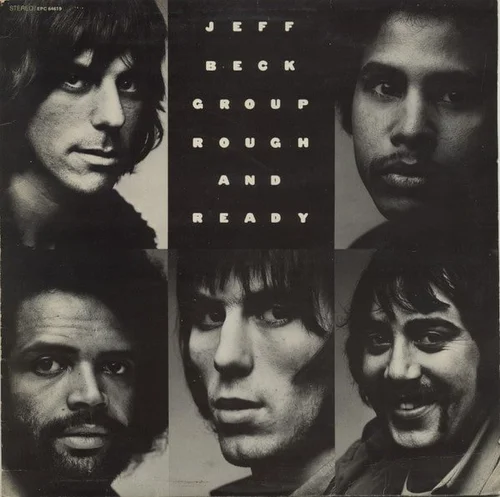







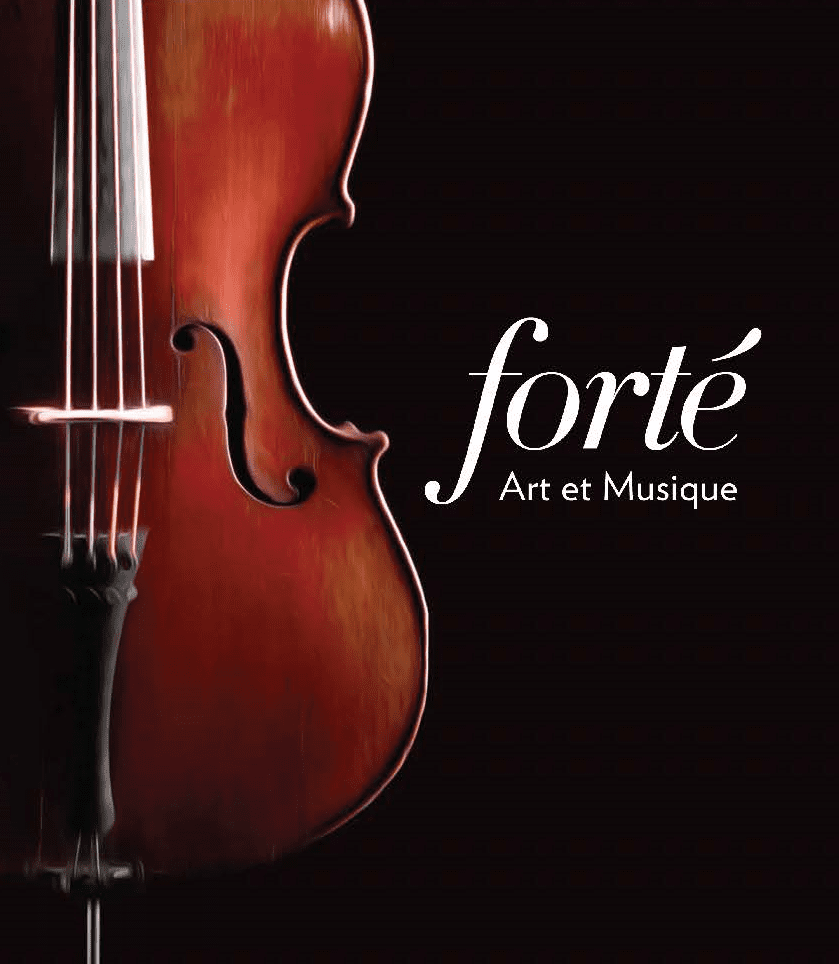
Leave a Reply